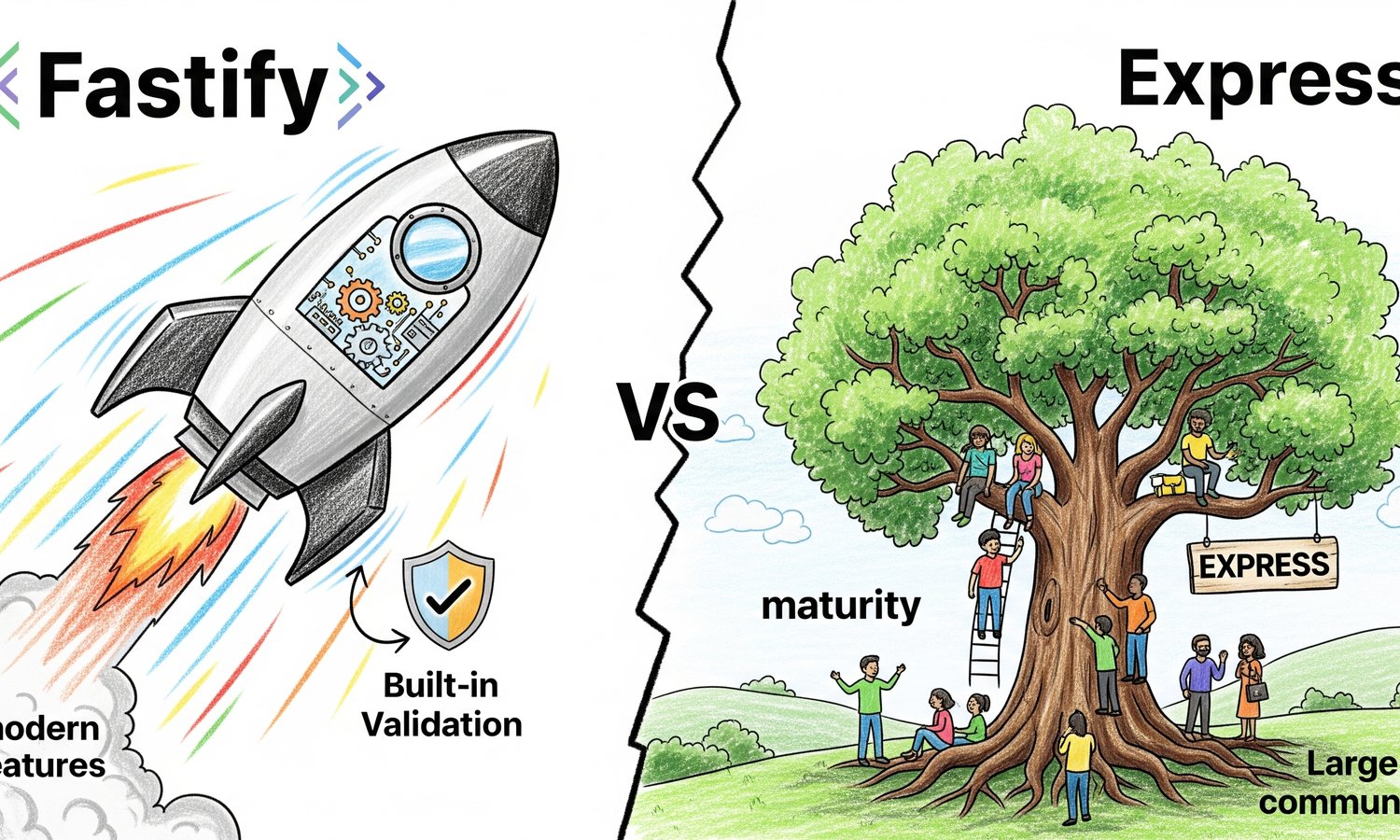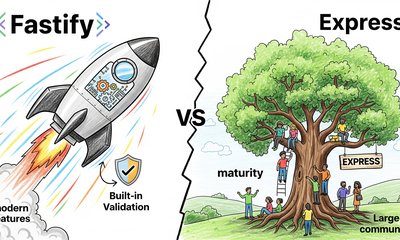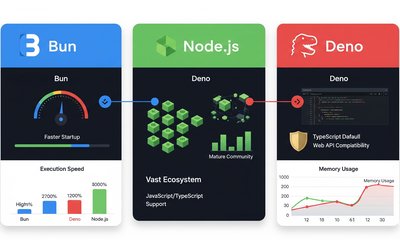Fastify: The High-Performance Web Framework for Startups and SMEs
By hunglv, at: Dec. 1, 2025, 8:41 p.m.
Estimated Reading Time: __READING_TIME__ minutes


When it comes to building APIs in Node.js, most teams default to Express, the “old reliable”.
But Express is now over a decade old, and while it’s simple and battle-tested, it struggles with modern demands like performance, schema validation, and developer productivity at scale.
Enter Fastify, a next-generation Node.js framework designed for speed, scalability, and maintainability.
What Is Fastify?
Fastify is a web framework for Node.js focused on:
-
Performance: Capable of handling ~30k requests/second (benchmarked faster than Express).
-
Developer experience: Built-in schema validation, plugins, and TypeScript support.
-
Low overhead: Optimized core, keeping latency as low as possible.
📖 Official site: fastify.io
Why Fastify Matters for Startups and SMEs
-
Performance = Cost Savings
-
Faster request handling means you need fewer servers to handle the same traffic.
-
Lower infrastructure costs = direct financial savings, critical for lean startups.
-
-
Built-In Validation
-
Fastify uses JSON Schema for request validation.
-
Prevents bad data from ever reaching your database.
-
Saves support costs by avoiding downstream bugs and failures.
-
-
Plugin Ecosystem
-
Modular design: authentication, logging, databases, caching - all as plugins.
-
Faster development, easier maintainability, and less custom boilerplate.
-
-
TypeScript Ready
-
Type safety without extra complexity.
-
For SMEs hiring junior devs, this reduces runtime errors and improves reliability.
-
-
Long-Term Scalability
-
Start small (like Express), but scale to handle millions of requests.
-
Designed for microservices and serverless architectures.
-
Example: A Simple Fastify API
import Fastify from "fastify";
const app = Fastify({ logger: true });
// Route with schema validation
app.post("/signup", {
schema: {
body: {
type: "object",
required: ["email", "password"],
properties: {
email: { type: "string", format: "email" },
password: { type: "string", minLength: 8 },
},
},
},
}, async (req, reply) => {
const { email } = req.body;
return { success: true, user: email };
});
app.listen({ port: 3000 });
Business impact: This isn’t just clean code. It’s a safeguard against invalid input that could cost hours of debugging, lost customer trust, or even compliance issues in regulated industries.
Fastify vs Express
| Feature | Express | Fastify |
|---|---|---|
| Performance | ~15–20k req/sec | ~30k req/sec (2x faster) |
| Validation | Manual / middleware | Built-in (JSON Schema) |
| TypeScript | Community packages | First-class support |
| Plugin system | Middleware heavy | Lightweight plugins |
| Logging | Manual | Built-in via Pino |
| Scalability | Monolith-friendly | Designed for microservices |
Real-World Use Cases
-
NearForm (enterprise consultancy) uses Fastify for high-traffic APIs.
-
Microsoft Teams adopted Fastify plugins for improved performance.
-
Startups at scale: Fastify is often paired with Bun or Node.js to maximize speed for APIs running in serverless environments.
Pros and Cons of Fastify
Pros:
-
Blazing-fast performance
-
Schema-based validation = fewer bugs
-
Modular plugin ecosystem
-
Great TypeScript support
-
Lower operational costs for scale
Cons:
-
Smaller community compared to Express
-
Fewer tutorials and StackOverflow answers
-
Some Express-specific middleware not directly compatible
Conclusion: Should SMEs Adopt Fastify?
If your SME or startup is building an API today, Fastify offers a serious edge:
-
Faster APIs → Better customer experience
-
Schema validation → Reduced operational overhead
-
Scalable architecture → Future-proof growth
For teams already on Express, the migration is straightforward (Fastify even offers an Express compatibility plugin). For new projects, starting with Fastify means you’re building with performance and scalability baked in from day one.





